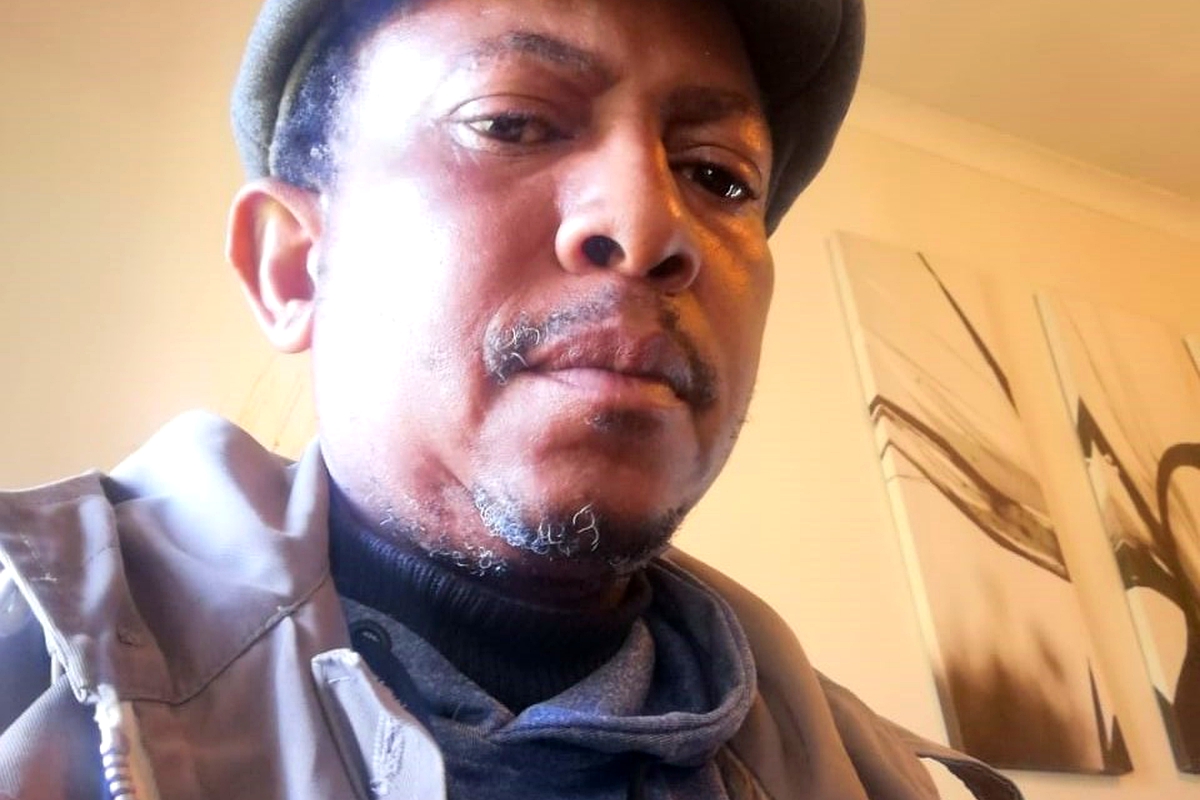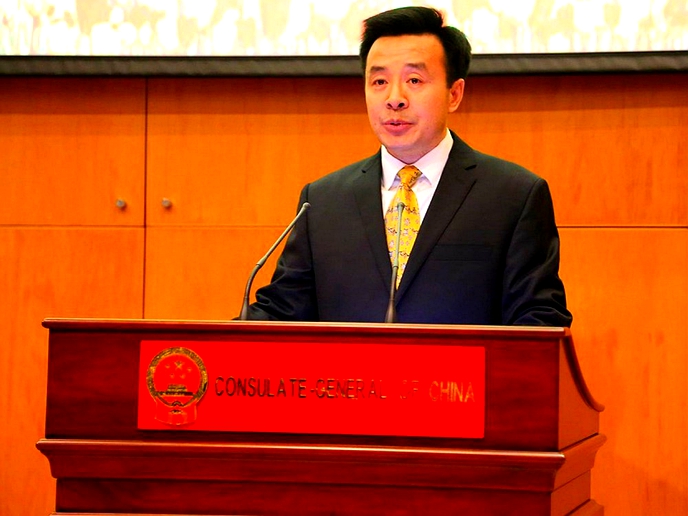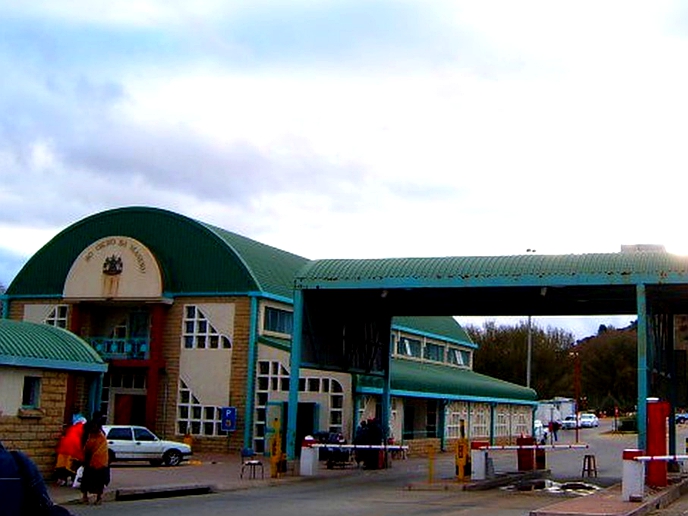KEKETSO Lawrence, one of Lesotho’s pioneers of modern-day journalism who was instrumental in the training of most media personalities in the country, was laid to rest at his Ha Bua-Sono residence in Berea on Saturday.
society
Jan. 22, 2024
LEBOELA MOTOPI
10 min read
Adeiu Keketso Lawrence: Lesotho loses out as media guru bows out

The editor, Keketso Lawrence
Story highlights
The 54-year-old media expert, whose career spanned over three decades, died on Christmas Day from a stroke, his family has confirmed.
His younger and only sister, Ntšeliseng Lawrence, says the family is devastated by the passing of her brother, who was everything to them.
“We will forever remember his amazingly warm and loving heart. He was our pillar of strength; his ability to mediate and give great counsel was legendary. He was such a down-to-earth person whose endearing smile was infectious.
“Everybody will miss his cooking which was out of this world, especially on Sundays when he would go all out to prepare delectable dishes,” she says.
Ntšeliseng adds: “Our mother, who is very old and sickly, almost failed to survive the news of the passing of her only son. He had been healthy, and there was nothing wrong with him health wise hence when he suddenly collapsed on Christmas Day, everybody was shocked.
“We are all still reeling from the shock especially the younger children in the family who cannot even understand what the fuss is all about, but they are aware that their uncle and grandfather is no longer around, and it is very confusing to their young minds,” she says.
The media legend, who was also a proficient chef, had an astounding knowledge of herbs and healthy spices, which he frequently used in his cooking hobby.
Lawrence who stayed alone at his small chicken farm in Ha Bua Sono collapsed on Christmas Day while hosting some friends.
He was later rushed to the Queen ’Mamohato Memorial Hospital, where he never recovered from the unexpected stroke.
Lawrence, who owned the once-famous Mopheme newspaper, was instrumental in the establishment of a number of media organisations both locally and in the region, particularly the Media Institute of Lesotho (MILES), now called MISA Lesotho.
He was part of the founding forum of the Media Defence Fund within the MISA structure, which was meant to bolster local journalists’ legal protection and enhance media freedom through relevant investigative journalism and strategic litigation.
He was largely involved in regional media integration and was a founding member of a regional media organisation called the All Africa Dot Com, which reported on regional affairs. He was a firm believer in developing young journalists’ skills and was good at spotting as well as developing talent.
“One of his biggest strengths was identifying talent and nurturing it; I am a product of that. When I first joined the media fraternity in 1996, I studied creative writing, which entails writing anything but not specifically news. Lawrence taught me how to write news and become a fully-fledged reporter. He groomed me, and years later, when I left Mopheme, he had turned me into an international journalist.
“I know for a fact that a large number of local reporters who worked in the field around that time were trained by him under his Newshare Foundation.
“I can mention several of them, including Felile Moholi, Lintle Bless, Thabang Matjama, Tankiso Spozo, Leboela Motopi, and Lineo Monyamane, now Dr. Lineo Letlala, a top local female gynaecologist,” says retired journalist Kekeletso Motopi-’Matli, who now works as an international educator.
Lawrence started his writing profession as a short story writer, and his most notable work was the long-running love story of 'Mamokoto, which was published in the then-best-selling but now defunct magazine, Shoeshoe.
“For those of you who will remember, the story was about a girl from the rural areas who came to Maseru in search for greener pastures, and she met an affluent guy who elevated her life, and the interesting story goes on,” recalls Motopi-’Matli.
In his lifetime, Lawrence was a regular correspondent for most domestic newspapers and magazines.
He was instrumental in the establishment of the weekly newspaper, Lesotho Times, and initially owned shares in the publication.
He worked for Public Eye newspapers both in Lesotho and the Free State as a news editor, editor and training editor.
Lawrence also worked for Public Eye’s sister publications, Mosotho and Maseru Metro, where he held similar positions but at different times.
Internationally, he was a regular correspondent of Reuters, The Voice of America, Afrol News, AFP, and the South African Broadcasting Corporation (SABC).
He also produced newsletters and wrote annual reports for several local organisations, such as the Transformation Resource Centre (TRC) the Christian Council of Lesotho (CCL), Letšeng Diamond, the Ministry of Trade and Industry, and the Lesotho Red Cross Society (LRCS), to mention but a few.
His friend and former colleague at Public Eye and Maseru Metro, Teboho Khatebe Molefi had this to say about him: “I was in stitches this Wednesday when during his memorial service Ntate Lawrence’s son, Molise, attempted to give incidents that happened when and after his father died some religious and/or spiritual meaning. He appeared confused, linking the nativity and the passion of Jesus Christ and the raising of Lazarus to an understanding that I failed to grasp in the end.
“I was not surprised for Ntate Lawrence was a complex being himself, with a similarly complex spirituality.
“My latter years of both professional and personal interaction with him made me accept that we do not need to know precisely what is happening around us in our daily encounters or exactly where it is all going. And that what we need is only to recognise the possibilities and challenges offered by the present moment and to embrace them with courage, faith, and hope.
“Apart from his regular jolly chats, jokes, and obscenities, Lawrence gave me the sense of spirituality as a broad concept with room for many perspectives—apart from my largely narrow understanding of the concept as a former Catholic seminarian, ‘a run-away priest’ as he and a group of other friends would usually call me.”
Khatebe adds: “Though it might sound untrue to some people, Lawrence exuded a sense of spirituality hinged on a sense of connection to something bigger than ourselves, which typically involves the search for meaning in life.
“He once described to me a spiritual experience so sacred or transcendent that it left him with a deep sense of aliveness and interconnectedness with God and nature.
“Some may find that their spiritual life is intricately linked to their association with a church, temple, mosque, or synagogue, not Lawrence.
“He found comfort in a personal relationship with God or a higher power, and sought meaning through his connections to his profession, nature and art. And his sense of purpose, his personal definition of spirituality always appeared to change adapting to own experiences and relationships.
“These I got to know one 2023 Saturday afternoon as we sat at his Ha Buasono home sipping drinks—and digging into some nicely prepared fish—with a few of my friends with whom I had visited this multi-talented media trainer; our chat that day made me realise that his spirituality was connected to large questions about life and identity. Actually, the things he said, I never expected to hear from him, knowing the Lawrence that we all know.
“He called me inside the house and brought from his bedroom a small rock that he said has guided him to Ha Buasono, to this exact location where he built his home... The rock was an exact replica of the hill in front of his home. He narrated how the rock got into his possession and how it was connected to his general spirituality, while also educating me on the spiritual history of the hill we stood there gazing at.
“From his mouth, I learned that spirituality ought to be the aspect of humanity that refers to the way we seek and express meaning and purpose, and that this way we should experience our connectedness to the moment, to self, to others, to nature, and to the significant or sacred—an experience that brings the experiencer into contact with the divine, striving for answers about the infinite.
“Lawrence’s spirituality was about seeking a meaningful connection with something bigger than himself, a spirituality that always gave him positive emotions, such as peace, awe, contentment, gratitude, and acceptance. This cultivated in him a positive state of mind, which broadened his outlook to recognise and incorporate a connection to something larger than himself.
“I feel we haven’t spoken and shared enough, Ntate Lawrence, and I thank you for the moments we had. But I know we are going to meet again to finish off over a bottle of Ntjanyana and grilled fish, but this time I am cooking, and I owe you that much.”
Lawrence cut his teeth as a cub reporter with the state-owned Lesotho News Agency in 1989 where he remained until 1991 when he joined the private media, working for the once formidable The Mirror, under the guidance of its owner and editor, the late Mike Pitso.
He left The Mirror after Pitso’s passing to form his own company, Newshare foundation, which published Mopheme - The Survivor Newspaper
The newspaper was formed in February 1994, and Lawrence co-owned it with Bethuel Thai, Khutliso Sekoati and the late Thabiso Mlunwgane.
Years later, when the other partners left to pursue other interests, Lawrence remained the sole proprietor and editor.
He trained and worked in, among others, Namibia, Zimbabwe, Zambia, and Botswana, and later became an NSJ trainer.
He was a strong advocate of human rights and spent many years working part-time as a UNICEF child rights trainer while also dabbling in United Nations (UN) gender-related issues.
The multi-talented journalist was also passionate about drama and music, especially jazz and blues.
In the late nineties, Lawrence, who had formed a jazz band called Metsi a Lihlaba, produced an album by the same name, Metsi a Lihlaba.
He was both the lead singer and lead guitarist in the group.
In his early life, he did a lot of stage acting as well as played musical instruments like the guitar, piano, and drums for local drama groups such as the Menyepetsi Musical Drama in the mid-eighties.
Enjoy our daily newsletter from today
Access exclusive newsletters, along with previews of new media releases.
A few years later, he formed the Merabe Cultural Theatrical Group with his childhood friend, Lebohang Belebesi of Motimposo in Maseru, where Lawrence also grew up.
The young friends were both directors and playwrights for the group, which became famous both locally and internationally during its heydays.
Under the tutelage of Lawrence and Belebesi, the theatre outfit taught drama in most local schools and toured the entire country, acting in drama plays and playing music.
They later joined the Lesotho National Troupe in the late nineties and kept teaching traditional dancing and music to the locals, with Lawrence playing the drums.
“We competed in a national theatre competition in Pretoria, South Africa, where we won a gold medal, and Lawrence was instrumental in the planning and arranging of the plays and music that we competed with.
“I will forever miss him because he was a dear friend of mine. He was one of the most intelligent young people I had ever met. Even as a young boy, he was always outstanding; there was something special about him. In recent years, we ran an eatery together, but the business folded owing to the COVID-19 pandemic,” Belebesi says.
The business, he says, specialised in grilled fish and like a vegetarian, he adds his friend who was also a master chef prepared mouth-watering fish dishes.
The late editor, who was a great lover of sports, especially football and chess, would never start his day without a big mug of strong black coffee and a Stuyvesant cigarette.
He would never miss a chance to imbibe in his favourite Dog Harrier whisky, which he had nick-named Ntjanyane (a small dog in Sesotho).
Lawrence, who was a divorcee, is survived by his mother, ’Mme ’Makeketso, his sister Ntšeliseng, two sons, Molise and Khabane, his daughter Pearl, a niece, and three grandchildren.






